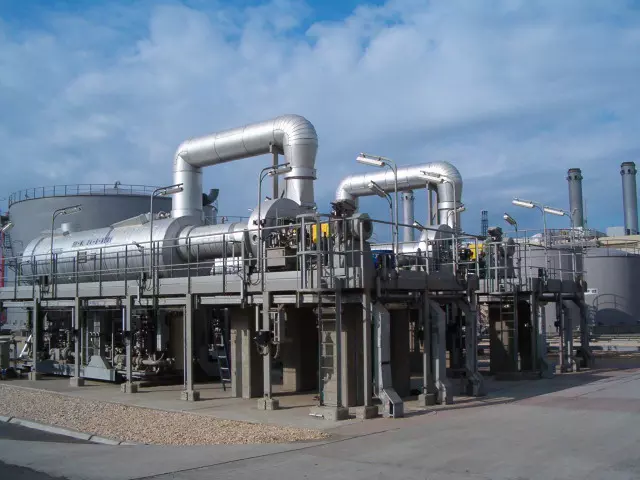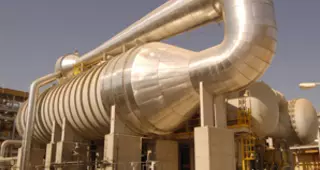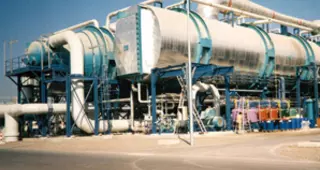Processes for Sea Water Desalination
ENTROPIE can offer sea water desalination systems based on either of the leading technologies depending on fresh water needs
Overview
ENTROPIE is the world leading specialist in sea water desalination through low temperature distillation processes such as :
- Multiple Effect Distillation (MED)
- Multiple Effect Distillation with Thermal Vapour Compression (MED-TVC)
- Multiple Effect Distillation with Mechanical Vapour Compression (MED-MVC)
A Multi Effect Desalination MED unit is an evaporator where sea water is evaporated in one or more ( up to 14 ) evaporation stages at low temperature (< 70°C ) in order to produce clean distillate water.
MED process is designed to produce distilled water with steam or waste heat from power production or chemical processes, and/or to produce potable water.
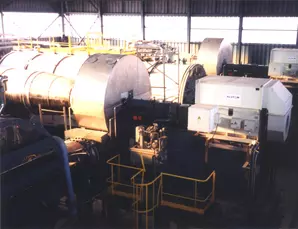
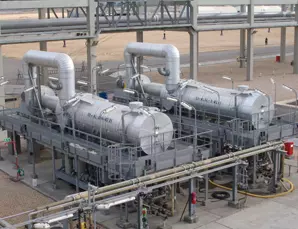
MED-MVC Process Scheme
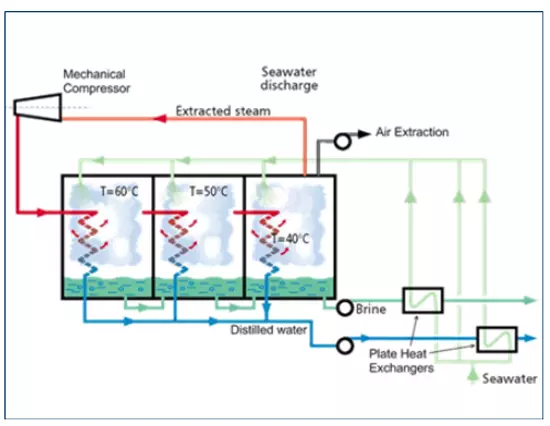
- When no steam is available, it is still possible to use the MED process by adding a Mechanical Vapour compressor (MED-MVC).
- In such case the vapour is recycled from the cold cell to the hot one by means of a centrifugal compressor driven by an electric engine.
- A maximum capacity of 5,000 m3/day can be obtained with current compressor technology
Applications
The technology
When no steam is available, it is still possible to use the MED process with a Mechanical Vapour Compressor (MED-MVC). In such case the vapour is recycled from the cold cell to the hot one by means of a centrifugal compressor driven by an electrical engine (refer to sketch). The electrical consumption of such system is in the range of 8 to 15 kWh/m3. Due to current limitation in compressors technology the maximum capacity of MED-MVC units is 5000 m3/day per unit.
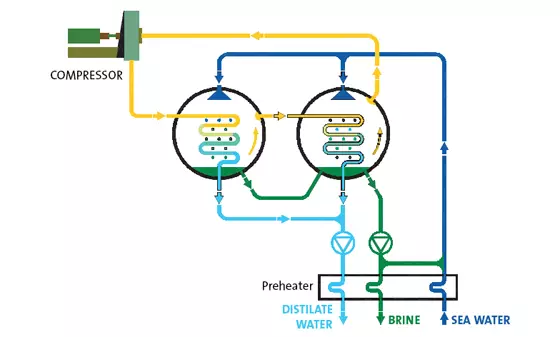
The Advantages
- Range up to 5 000 m3/day
- Are environmentally clean : 100 % electrical process (no external heat source)
- Have high energy efficiency : electrical energy consumption ranging from 8 to 15 kWh/m3
- Sea water consumption is reduced with only make up water necessary (no need of cooling water)
